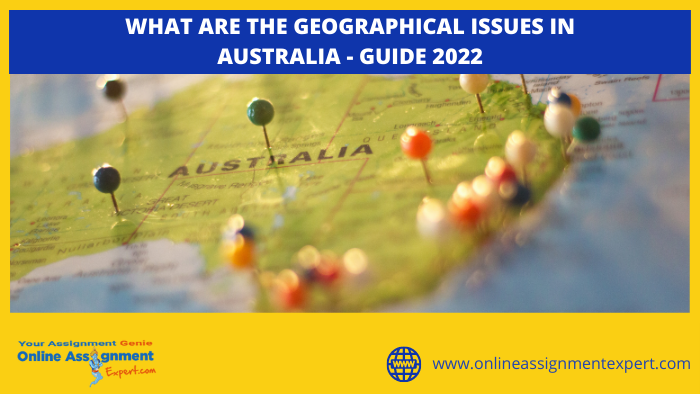
Australia's architecture, cultural and natural history, as well as marine and Antarctic environments, are all excellent. However, in other areas, the status of the ecosystem is deplorable and/or deteriorating. These include huge coastal regions and certain growth zones inside urban areas, which are subject to the greatest human pressure (particularly in Australia's south-east); and Australia's enormous land-use zone, where ranching poses a severe threat to variety.
Land-use change, habitat degradation and erosion, and exotic species are the key challenges impacting Australia's ecosystem now, as they were in 2011. There's no evidence that they've gotten any better since 2011. Some individual constraints on Australian environmental components have lessened (for example, commercial fishing), while evidence suggests that others have increased. The consequences of many, on the other hand, are unknown. Furthermore, interconnections between stressors can have cumulative effects, exacerbating the damage to geographical issues in Australian ecosystem.
.png)
According to new Roy Morgan data, a record high 41% of Australians consider global impacts to be the most pressing issue confronting the country, up 17% since June. Economic issues were noted by another 22% (a drop of 12% points). This is the worst effect of a market problem since April 2006, just before the Global Financial Crisis.
The geographical problems in Australia are also widely viewed as the world's most pressing problem. Environmental concerns were named by 46% of Australians as the most serious problem confronting the world, roughly three times as many as the next most pressing topic.
Australia participates in a number of important international environmental initiatives. 'Desertification' is one of them. This is a United Nations policy signed by 193 countries to help countries affected by desertification and drought. The 'Biohazardous Material' policy, which can be used to measure and reduce toxic waste in the environment, water, and soil, has also been endorsed by Australia. This is particularly critical in the mining business.
Whaling, biodiversity, marine pollution, and several Antarctic conventions are among the other regulatory requirements that have been signed. Students who got assignments on these topics can better seek Science assignment help from online expert’s tutors. They can help students in guiding students on completing their assignments on their own within the deadline.
Worries about climate warming change (25 per cent) are the most common climate change in October 2019, with drought (6 per cent) and water conservation/Murray-Darling basin water difficulties (5 per cent) rounding out the top three.
Economic difficulties (7 per cent), unemployed (4 per cent), poverty and the wealth gap (3 per cent), and standard of housing prices/lack of income growth are among the top economic worries raised (2 per cent).
Australia's temperate places have been significantly affected in many regions, and many rivers have been damaged. The causes of the significant changes sweeping across Australia's ecosystem are global warming and imported plants and animals (invasive). What's the end result? Several species' diversity and abundance have decreased dramatically, and environmental resources like water are becoming limited.
Deforestation
Saline water drainage from skyrocketing places might have degraded the water conditions downstream.
Soil depletion and agricultural clearing
Since European colonization, roughly 13% of Australia's original vegetation has been destroyed due to clearing operations for farm production. Furthermore, overgrazing spread to desert and erosion.
Illegal fishing and overfishing
Regions of Australia's fishery resources have now been degraded to unsafe levels due to overfishing. The reality that only some areas have reduced metabolic content and extensive fishing vessels operations are two major contributors to the issue.
Exotic species introduction
Annually, Australia is predicted to obtain roughly 40 new pests or illnesses. Cane toads, rabbits, willows, and, more frequently, black lacquered mussels are other well-known instances.
Feral cats, foxes, and rabbits have traditionally been accountable to the community extinction events and major range limitations for native species due to the confluence of habitat alteration and hunting. They are a significant ongoing issue.
Icecaps Melting
The majority of the world’s largest water is covered in concrete at the north and south poles, as well as glaciers all throughout the globe. The water level would rise by nearly 70 metres if it all melted. Of course, it won't happen in the near future, but even a 1 to 2-metre rising sea level, which is projected by the middle of the century, may drastically alter the world in a way.
Uncertainty in terms of food and water
Food and water insecurity is the fourth environmental issue on our list. People have been without food and water for a long time due to conflict and climate change. The geographical issues in Australia and the growing population are now threatening to obstruct access to these vital resources.
Despite the fact that the number of people suffering from malnutrition individuals is reducing, there are still over 650 million around the globe.
Fossil Fuels Cause Global Warming
CO2 parts per million (ppm) is at 417.55 at the time of writing, and the annual mean temperature has climbed by 1 degree Celsius. This phenomenon sits at the heart of global warming, with a slew of negative consequences, making it one of the most pressing issues of our day.
The Earth has a variety of carbon generating and absorbing systems that interact throughout time to form patterns. Regardless of past huge swings, the last 12,000 years have been unusually steady and mild, enabling people to thrive.
What else we can do: These challenges are intertwined with the growth of poor nations and how we as an international community deal with climate change. The more we do today, the easier it will be for greater economies to help people who are in need in the near future. It cannot be overstated how important it is for international leaders to set a good example for the entire world to follow! Happy Learning!
Get
500 Words Free
on your assignment today